Rohingya refugees coerced into going to remote Bay of Bengal island: Aid workers
Rights groups and humanitarian workers say some of the thousands of Rohingya refugees being shipped to a Bangladeshi island have been coerced into going to the remote, flood-prone place.
Bangladeshi police on Thursday escorted the first group of 1,000 refugees in buses from Ukhiya in Cox's Bazar for the journey to Chittagong port and then on to Bhasan Char – a flood-prone Bay of Bengal island.
A Bangladesh naval official said the first 1,500 refugees would leave from the port on Friday morning to cross to the island.
Mohammad Shamsud Douza, a deputy in charge of refugees in the Bangladeshi government, said the relocation was voluntary.
"They are going there happily. No one is forced. The government has taken all measures to deal with disasters, including their comfortable living and livelihood."
Media outlets quoting some Rohingya refugees, however, said their names appeared on lists compiled by government-appointed local leaders without their consent.
"They have taken us here forcefully," said a 31-year-old man as he boarded a bus.
"Three days ago, when I heard that my family is on the list, I ran away from the block, but yesterday I was caught and taken here," he added.
An 18-year-old woman said her husband had put their names on the list thinking it was for food rations. He fled when they were told to go to Bhasan Char, she said.
"We came here to save our lives facing different kinds of troubles and difficulties," she said. "Why would we go to that risky island?"
Human Rights Watch (HRW) said it had interviewed a dozen families whose names were on the lists, but had not volunteered to go.
Refugees International said the move was "nothing short of a dangerous mass detention of the Rohingya people in violation of international human rights obligations".
Some other aid workers said refugees had come under pressure from government officials who used threats and offers of cash and other enticements to persuade them to go to the island.
"We're deeply concerned about how this is unfolding, particularly in terms of continuity of care for some of our patients," one of the aid workers said.
The worker cited a case of a refugee with a mental health condition in a "state of panic" after being told he had to move and his concerns over where he would get his medication on the island.
A briefing note by a humanitarian organization said refugees were promised to be given priority to go back to Myanmar when repatriation took place, priority to be resettled in third countries, and access to education.
Bangladesh says moving refugees who agree to go to the island will ease chronic overcrowding in its camps.
Some Bangladeshi government sources said the refugees were being moved because there was little prospect of repatriating them to Myanmar.
Human rights groups have already urged Bangladesh to immediately stop its relocation of Rohingya refugees to the remote island.
The UN has said it has been given “limited information” about the relocation plan and has not been involved in preparations, stressing that “any relocations to Bhasan Char should be preceded by comprehensive technical protection assessments.”
The number of refugees in Cox’s Bazar has swelled since August 2017, when a state-sponsored crackdown in neighboring Myanmar prompted some 740,000 Rohingya Muslims to flee to Bangladesh. The country was already hosting some 200,000 Rohingya when the 2017 exodus began.
Since 2018, Bangladesh has been planning to relocate Rohingya to the desolate site.
But human rights groups have voiced concern about the plan because the island is remote and prone to devastation from cyclones.
In the past five decades, powerful cyclones have killed thousands of people in the Meghna River estuary, where the island is located.
More than 300 refugees were brought to the island earlier this year after spending several months at sea while attempting to flee Bangladesh. Rights groups say they are being held against their will and have complained of human rights violations.
The International Criminal Court (ICC) has already approved a long-awaited full investigation into crimes against the Rohingya minority in Myanmar, which has systematically driven Muslims across the border to Bangladesh.
Rohingya Muslims, who have lived in Myanmar for generations, are denied citizenship and branded illegal migrants from Bangladesh, which likewise denies them citizenship.
The United Nations has already described the Rohingya as the most persecuted community in the world.
VIDEO | Press TV's news headlines
VIDEO | 'War on Iran is only just beginning' ft. Laith Marouf
VIDEO | Gaza’s economy collapses due to Israeli war
VIDEO | Israel rejects US-approved Gaza technocratic committee
‘Narcissistic psychopath’: Netizens mock Trump over letter to Norway PM on Nobel Prize
Israeli forces demolish UNRWA buildings in occupied East al-Quds
Trump lashes out at allies over Greenland, shares private texts online
Iran’s Armed Forces will cut off any 'hand of aggression' against Leader: Spokesman






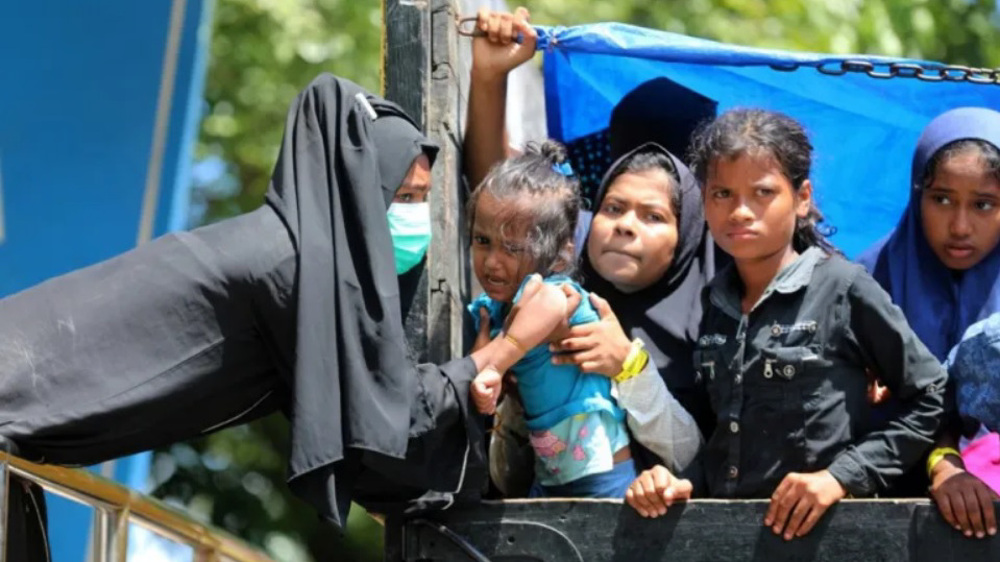




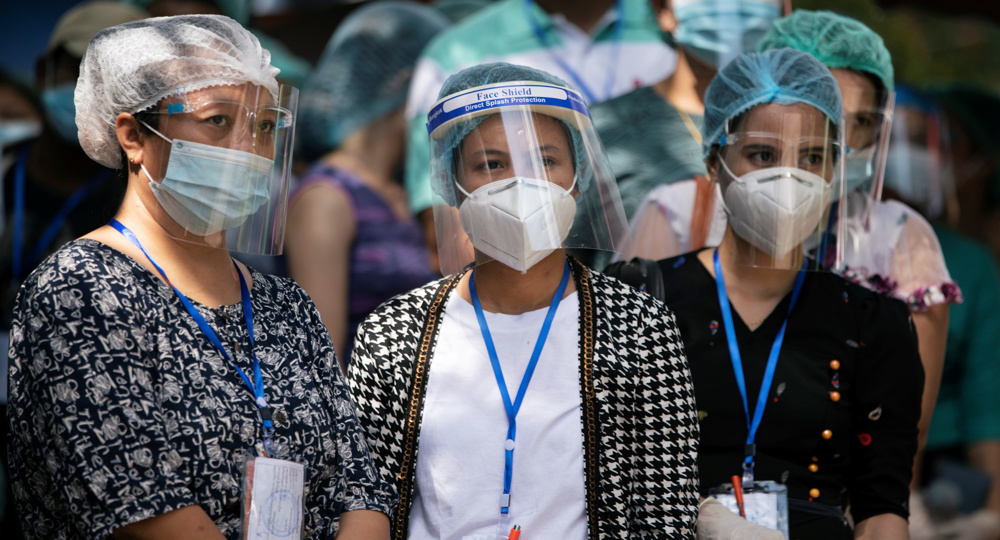
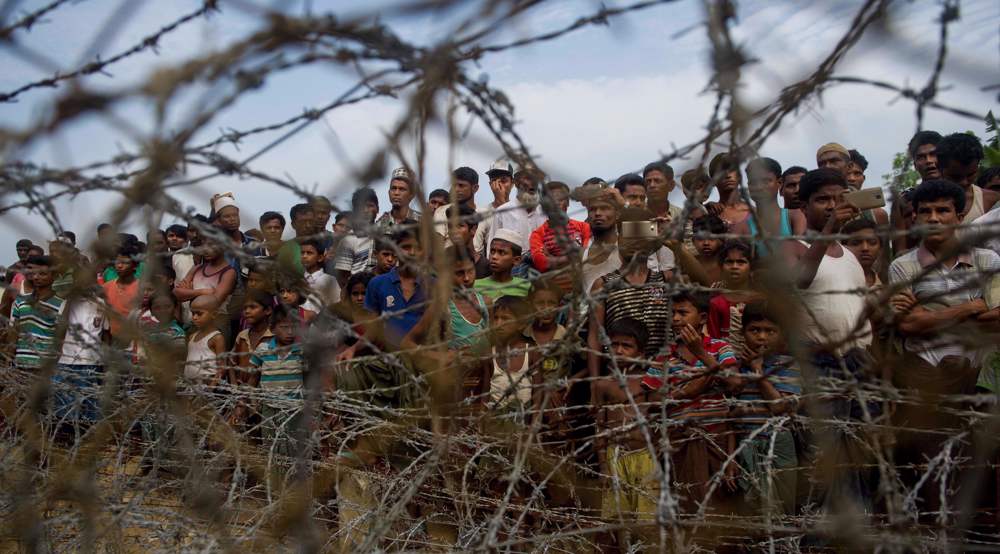
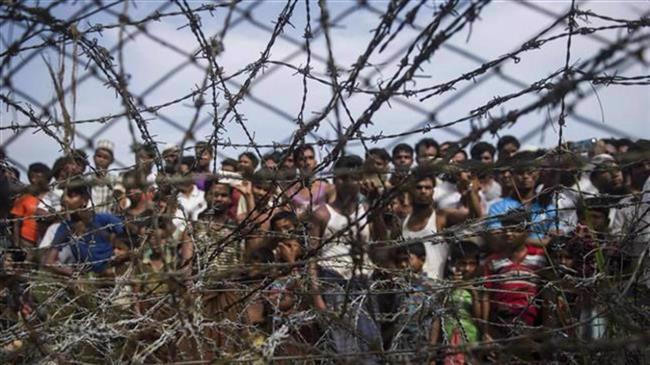
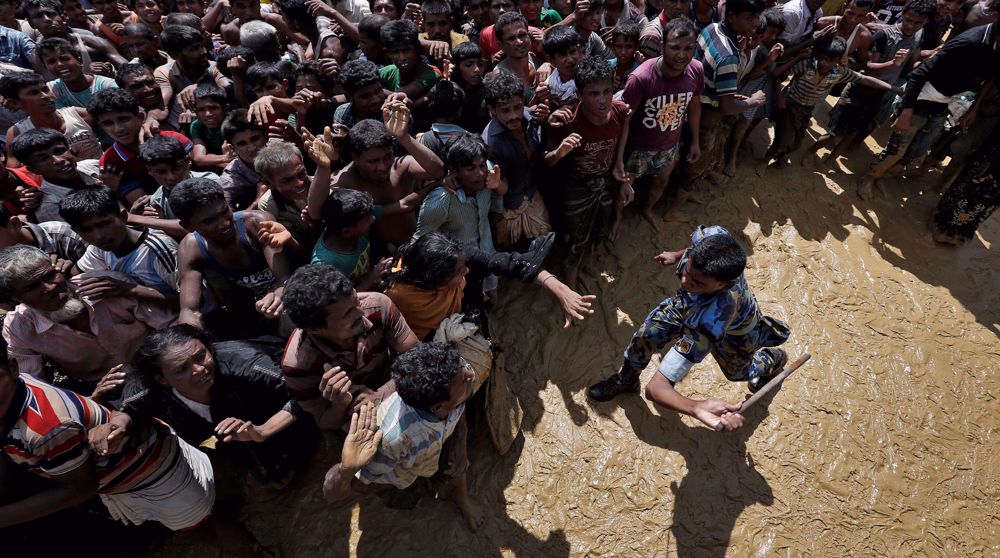

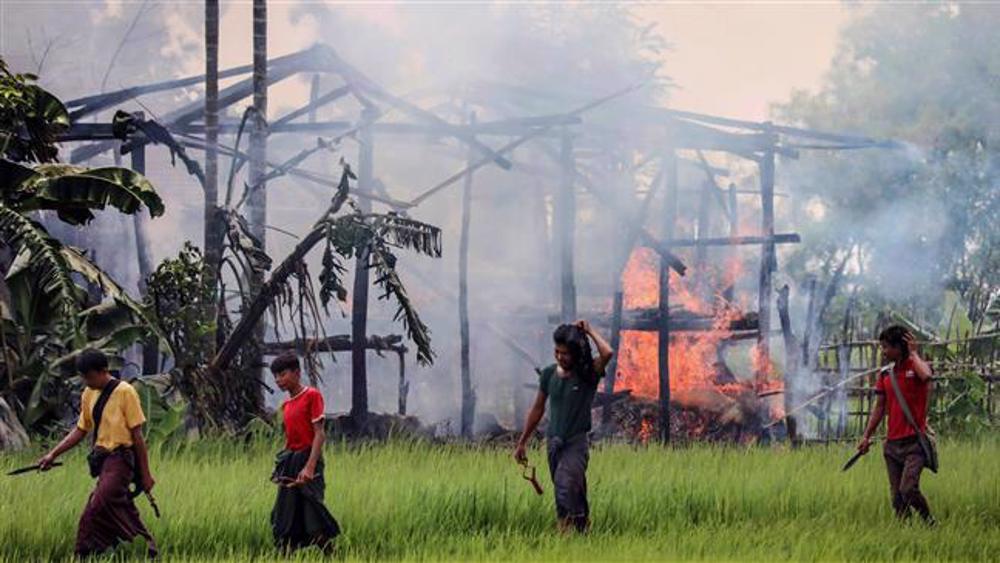

 This makes it easy to access the Press TV website
This makes it easy to access the Press TV website